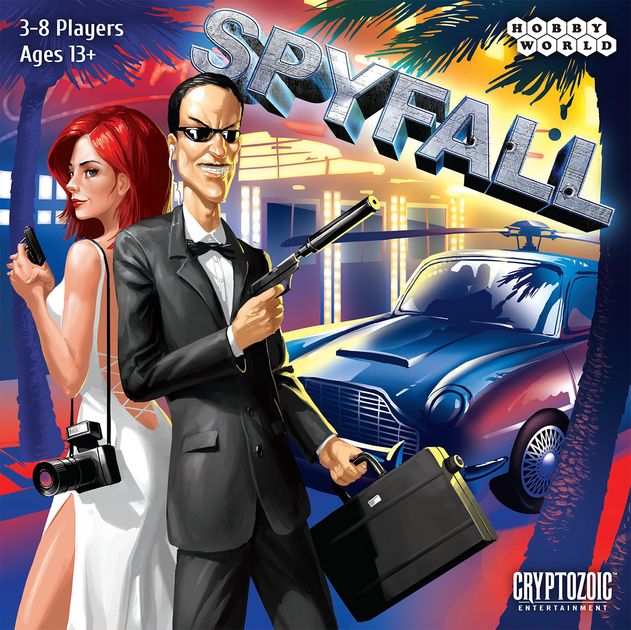
Introduction
Futel is a cooperative multiplayer social mediation game. Players are either living or lost. The lost must give clues in the form of voicemails sent to living players’ phones, so that the living may be able to deduce which phonebook entry is the solution that will rescue those who are lost.
Inspired by a desire to create a tactile experience for a remote game, I gravitated towards using phones and the call buzz as a physical interface element. The game leaned fully into the theme of audio transmissions and phone calls, which also led to an exploration of the aesthetic of horror and ambiguity. Eliminating players one-by-one follows traditional horror tropes and the situation gets increasingly isolating and dire.

The game’s namesake comes from the real Futel project, a collection of free payphones scattered across the country that have also been the source of urban legends and internet mysteries. By involving people’s phones and reaching outside of the traditional bounds of game interfaces, I wanted to create a greater level of immersion and approach this almost like an augmented reality game. The voicemails are intended to create an eerie sense of crossing boundaries into others’ personal lives and provide a peek at the underlying life and story to this world.
System Model
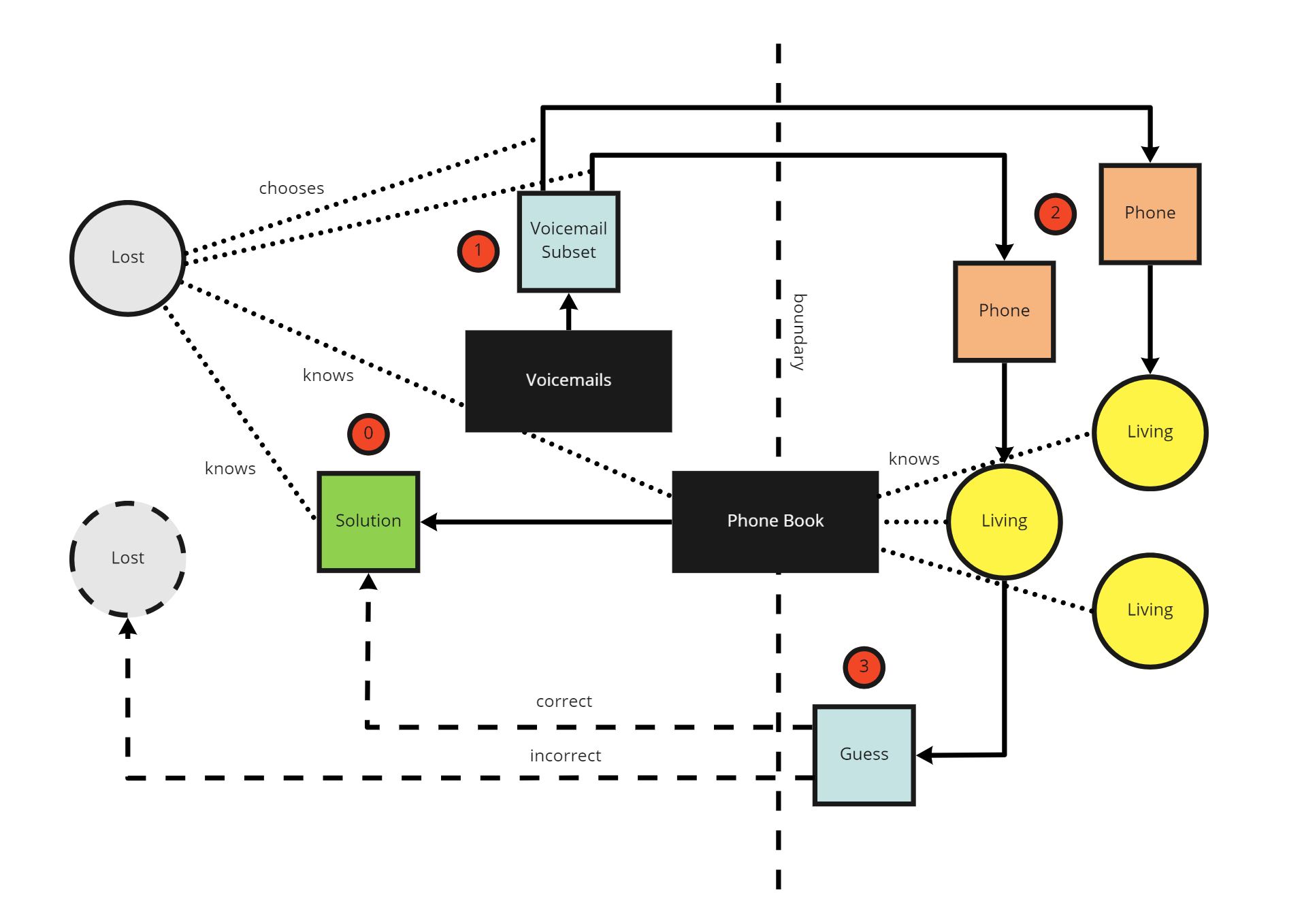
The game elements are depicted in the system diagram above. The large circles represent players, and rectangles represent game objects or materials.
Setup
One person in the group is designated as the game master, AKA the operator. Another person is randomly selected to be “lost”, while the remaining players are “living”. The lost person cannot communicate with the living, other than giving clues. The operator randomly designates one entry in the phonebook (a list of names, addresses, and phone numbers) as the solution and tells the lost player (0).
Gameplay
The lost player is given six random voicemails (1), of which they have to choose X to give as clues where X is the number of players minus 1, minimum 1. Each clue will be given to a different living player. The lost person confirms their selection with the operator who sends the voicemails to the phones of the living players. The living will receive a call on their phones that plays the audio of the voicemail (2). The living then discuss which entry in the phonebook that the lost is trying to indicate is the solution. The operator then prompts one random living player for their answer (3). If incorrect, that player becomes lost and joins the other lost person. If correct, all of the lost are rescued and everyone wins. This process repeats until everyone is either lost or the lost are rescued.
Ideation

With the theme of audio transmissions and telephones, I ideated mechanics that would leverage the medium. The main decision was figuring out a compelling challenge or puzzle that lent itself well to dialogue or sound effect-based elements or clues. I opted for a Mysterium-like guessing objective that lent itself well to more abstract or unrelated clues because it was more feasible to produce compared to a constructed preset narrative or puzzle.
Formal Elements and Values
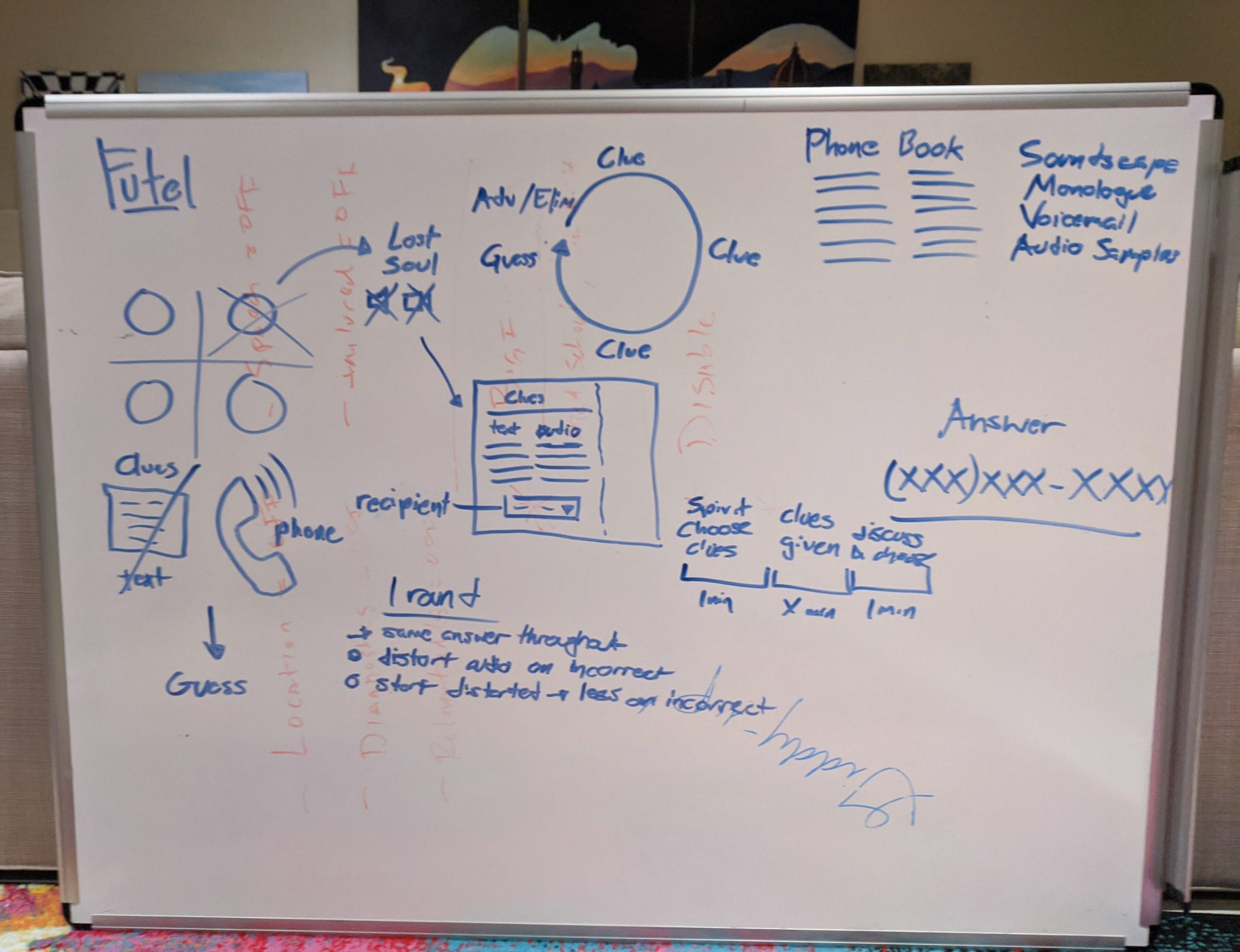
Futel is a cooperative game with a rescue/escape objective. The interfaces consist of the game menu and instructions, phone book, and voicemail dashboard. Both the subset of voicemails available to the lost as well as the solution phone book entry are randomly determined, introducing an element of chance, which increases replayability. For the lost, the challenge lies in understanding possible connections between the voicemails and the solutions. The living have to memorize what they hear from the voicemail and clearly articulate the relevant details to the rest of the group on top of trying to interpret how the messages connect.
The main mechanic of giving out clues in the form of voicemails forces players to exercise their listening and memory skills as well as communication and deduction. This creates a challenging internal mental dynamic of processing and keeping accurate and relevant information in memory. The dynamic among players becomes one of investigating each other’s recollections and collaboratively interpreting intent behind the otherwise disparate messages. This creates aesthetics of sensation due to the aural nature of the clues as well as challenge and fellowship from the collective deductive challenge.
Playtesting
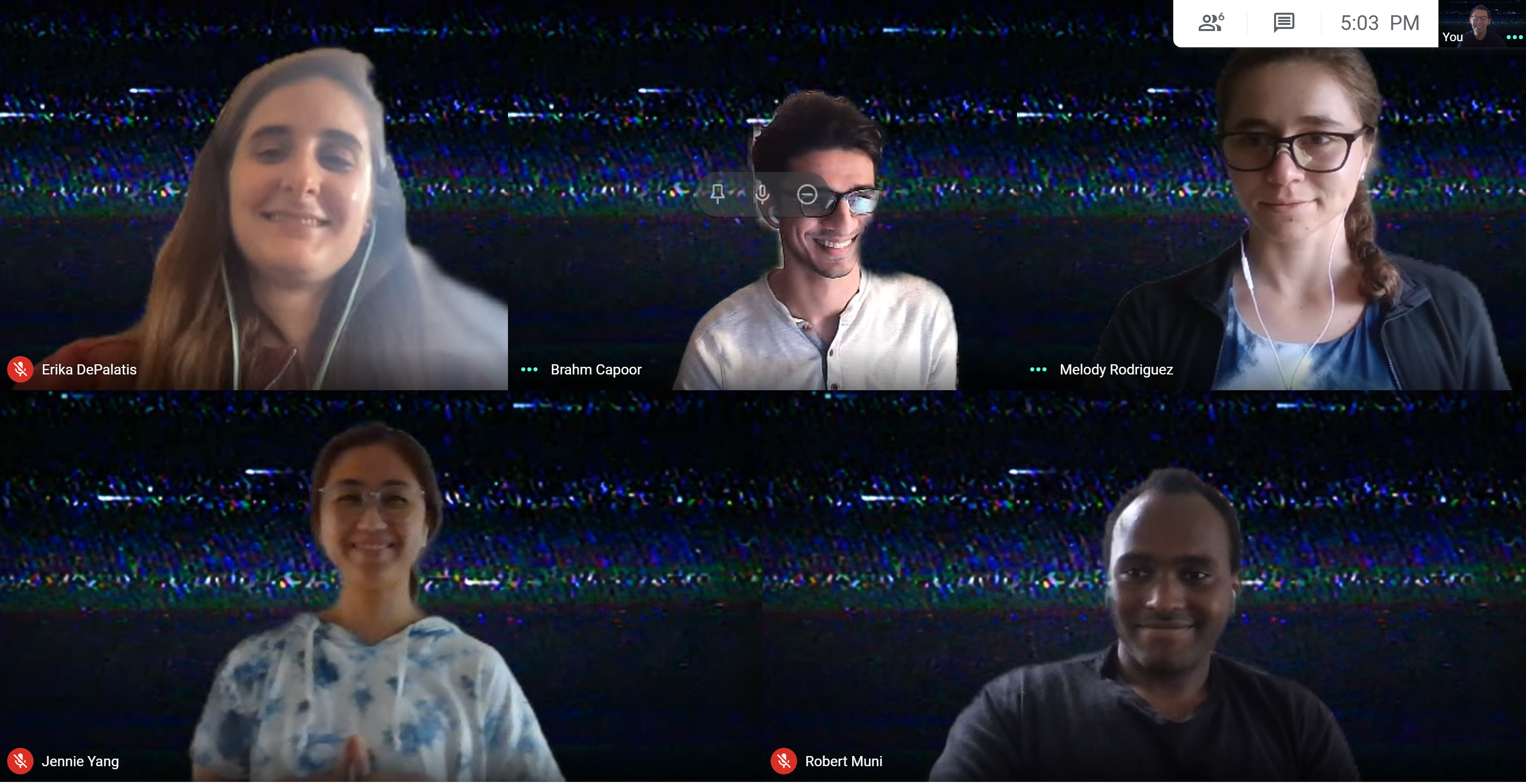
I conducted one playtest with a group of five friends. These were the main issues that we uncovered along with their respective solutions for the following iteration.
Issue: The lost player found it hard to process the list of 20 voicemails.
Solution: Deal a random subset of the total voicemail list to the lost player.
Issue: Giving one clue per living player in the first round put too much load on the single lost player and introduced too many misleading details for the living.
Solution: Decrease the number of clues to give. Now the number of clues is the number of players minus one, or at least one clue.
Issue: Difficult to understand how the game works at first because the mechanics seemed arbitrarily abstract.
Solution: Add a lore section to provide a stronger framework for understanding the intent and function of the mechanics.
Issue: Transitioning between meeting windows and audio modes was clumsy for lost players.
Solution: Use Discord for the whole game because muting oneself and switching between rooms is much easier.
Prototype
Videos of gameplay of the final test
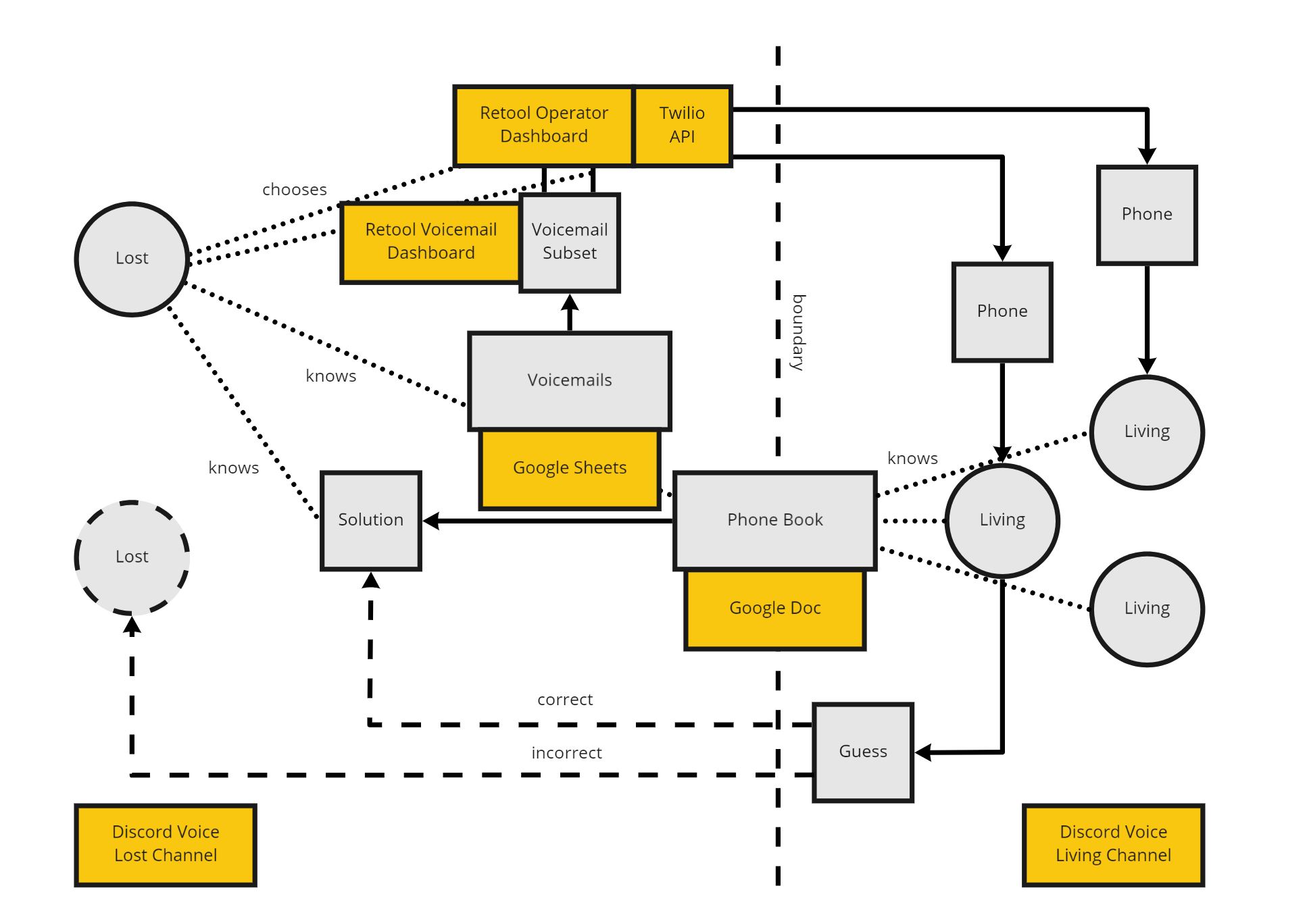
This system diagram describes each of the technological elements necessary to implement the game. Each element is linked below.
Player Materials

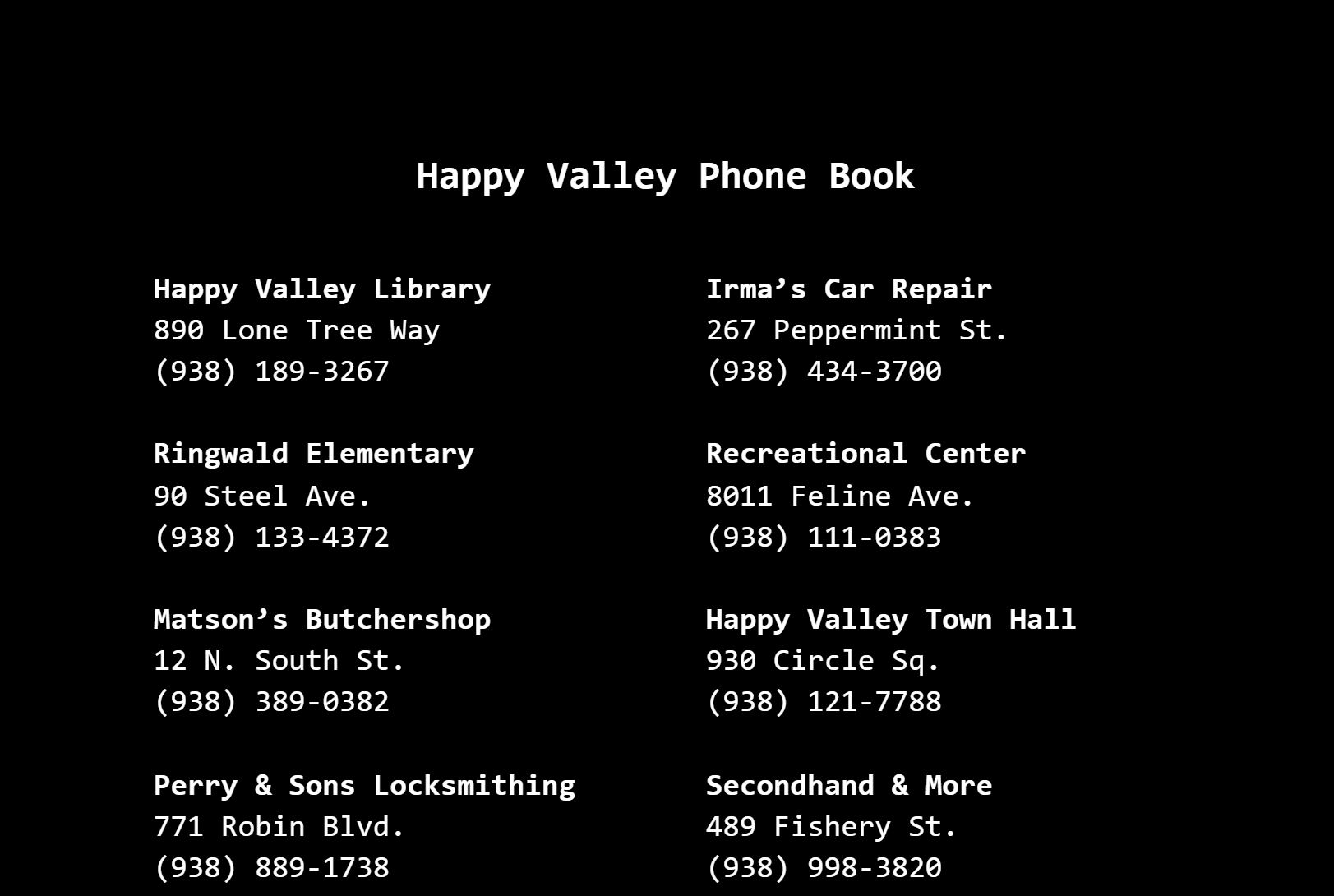
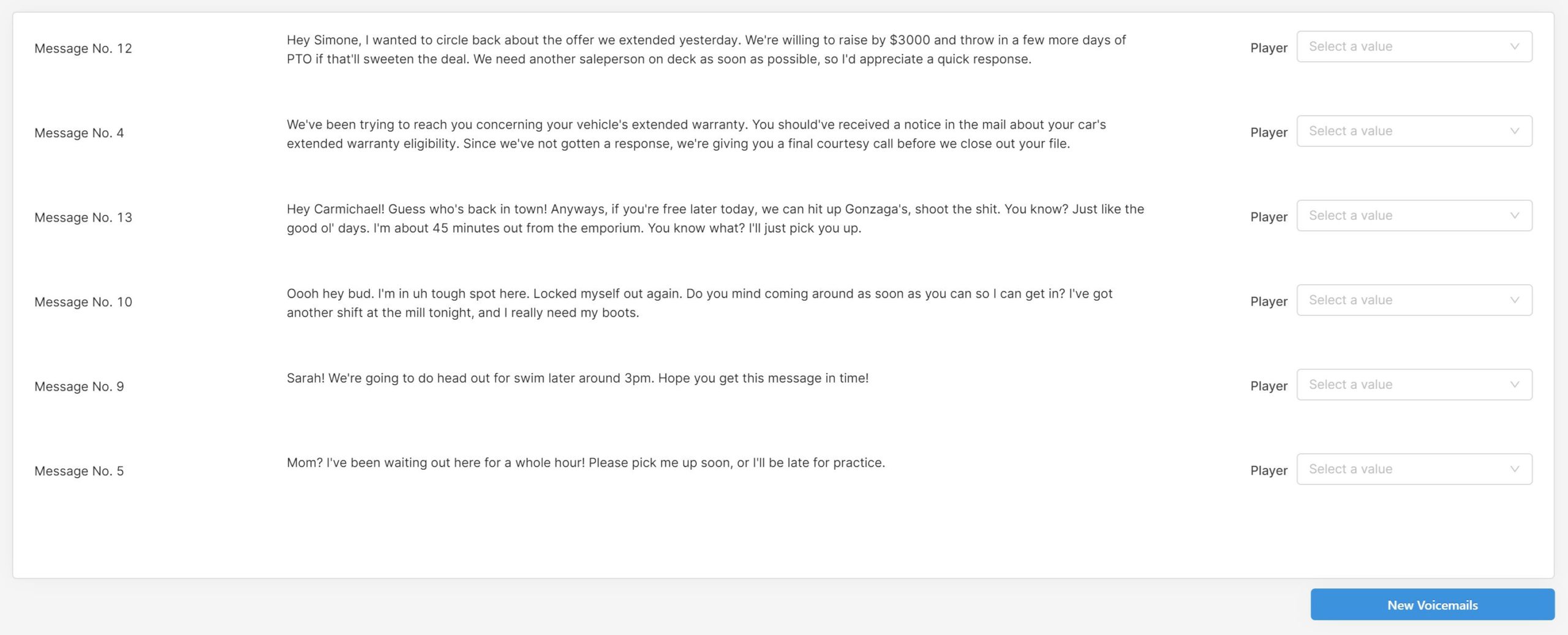
Game Master
Miscellaneous Setup Materials
Data: Voicemail Database, Player Phone Number Database
Communication: Discord Server
Takeaways
- Theme really helps guide choice of mechanics
- Frankensteining multiple technologies together is a useful prototyping technique but sometimes makes it tempting to produce prototypes that are too complex
- Balancing game elements, especially clues, is incredibly difficult. It would have helped to develop a system for cataloging the helpfulness of the clues to reduce variability.



